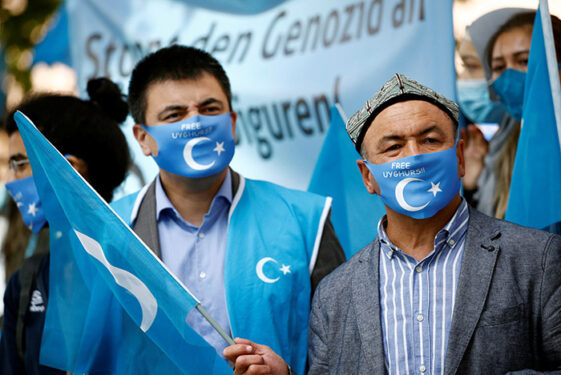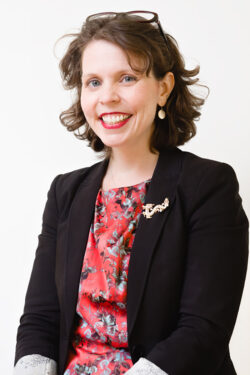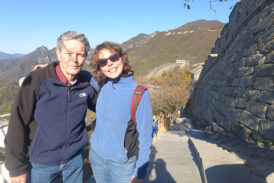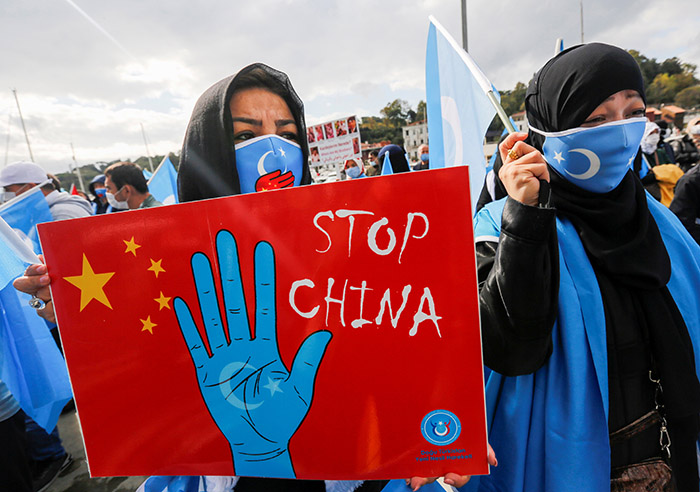
PROSPECT HEIGHTS — As a lawyer, Queens native Elizabeth Lynch understands the importance of legal definitions, including the term “genocide” in international law.
And by that definition, she asserts, there is ample evidence to accuse the leaders of the People’s Republic of China of a systematic plot to destroy an ethnic group of Turkic Muslims — the Uyghurs.
According to the United Nations, “To constitute genocide, there must be a proven intent on the part of perpetrators to physically destroy a national, ethnical, racial or religious group.”
Lynch said recent reports confirmed by a citizens’ tribunal in London documented abuses suffered by Uyghurs, including forced labor camp internments, forced abortions, sexual abuse, and mandatory sterilizations of women via surgically-placed IUD devices.
Birthrates have plummeted by nearly 50% since 2017 in Xinjiang Autonomous Region of Northwest China, which is mostly populated by Uyghurs, according to the tribunal. Lynch also asserts that preventing a group of people from reproducing signals their extinction.
Thus, the citizens tribunal found sufficient evidence to accuse China’s leaders of perpetrating genocide and also crimes against humanity in its dealings with the Uyghurs.
“We’re getting enough stories, and they’re coming from different camps,” Lynch said. “And they’re similar. But I have a feeling it’s a lot worse for women.
“And so the world needs to start believing women, and not just wait for ‘more proof’ from an authoritarian regime that’s not going to give you that proof.”

Lynch’s deep connection to Chinese people grew while growing up in a Catholic family in Whitestone, Queens. Her family belonged to St. Mel’s Parish in Flushing. Also in Flushing, she befriended children whose parents came from Hong Kong. She even studied Mandarin language with them.
“Chinese American kids have a rite of passage which is going to Chinese school on Saturdays,” she said. “And so I ended up going for a number of years, and it was a really great experience.
“I always got a special award every semester — the ‘good-for-you-for-trying award.’ So it was really a very welcoming environment. The people were just so generous and so open.”
Lynch continued studying Mandarin in high school and earned a bachelor’s degree in Chinese Studies and Political Science from SUNY-Albany. She spent one year as a Fulbright Scholar at Peking University in Beijing where she researched rule-of-law issues.
She was a research fellow at NYU Law School’s U.S.-Asia Law Institute, and her law degree is from Harvard. As a lawyer, Lynch has specialized in legal services, with a focus on foreclosure issues.
Still, her fascination with China has grown. Since 2009 she has written and edited a blog, China Law & Policy, which has covered a wide range of China issues.
“I write it for people who don’t have a China background, but just want to humanize what’s happening there,” she said. “I just feel like I have an obligation to give a perspective of somebody who has lived there, who speaks the language, who can read original material in Chinese.
“And sometimes that perspective is on horrible things happening here.”

Lynch said 2017 seems to be a pivotal year in the history of China’s handling of Uyghurs, because reports of human rights abuses began surfacing then.
Xi Jinping, who became president in 2013, has maintained a “broad and sustained offensive on human rights,” according to the group, Human Rights Watch.
Uyghurs, according to reports, have been a main target.
“There’s always been a bit of like an othering of the Uyghurs by the major population, but definitely like nothing we have seen after reports started coming out in 2017,” Lynch said.
She explained they are seen as standing in the way of Xi’s so-called “Belt and Road Initiative,” or BRI — a massive effort to improve railways, highways, and pipelines — to ship more Chinese goods abroad.
Parts of BRI go through Xinjiang, but Chinese officials fear the Uyghurs, who follow an outside influence of Islam, can’t be trusted and are suspected of subversive behavior, Lynch said. The officials point to a 2009 riot involving Uyghurs who, according to reports, were protesting unfair treatment by the government.

